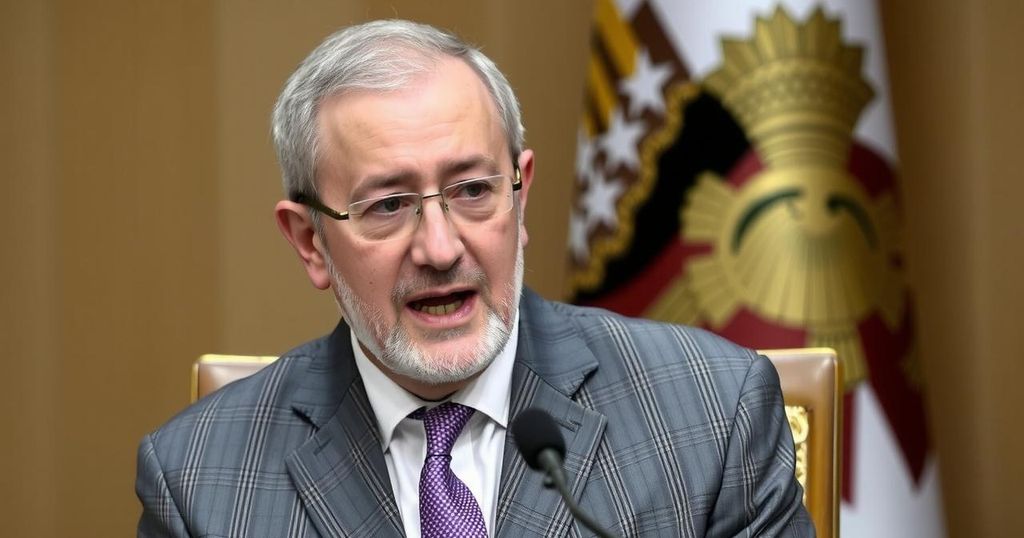Syria’s new leader, Ahmed al-Sharaa, has announced that holding elections may take up to four years, contingent on a national census and the drafting of a new constitution. This statement follows the recent ousting of Bashar al-Assad, as the country seeks stability and the potential for significant political changes. Al-Sharaa also emphasized the importance of Syria’s relations with Russia and expressed hopes for the lifting of U.S. sanctions.
Ahmed al-Sharaa, Syria’s newly established leader, recently announced that conducting elections in the war-torn nation may take up to four years. This statement marks his first public pronouncement regarding the electoral timeline following the ousting of former president Bashar al-Assad through military action by forces aligned with al-Sharaa’s group, Hayat Tahrir al-Sham (HTS). He disclosed in an interview with Saudi Arabia’s state-owned Al Arabiya that drafting a new constitution could extend up to three years, and asserted the necessity of a comprehensive population census before meaningful elections can take place.
Al-Sharaa emphasized that credible elections require a thorough assessment of eligible voters, which is contingent on the national census. He hinted at potential substantial changes in Syria within a year, along with plans to dissolve HTS during a national dialogue conference. These remarks aimed to instill a sense of peace and stability among Syria’s regional neighbors, as he assured that “Syria will not be a source of disturbance to anyone.”
The new leadership is keen on maintaining cooperative relations with Russia, a prominent ally that provided military support to al-Assad throughout the protracted conflict. Russian Foreign Minister Sergey Lavrov indicated that future negotiations will center around the terms of Russia’s military installations in Syria, highlighting the importance of collaboration between the two nations. Furthermore, al-Sharaa expressed hope regarding the potential lifting of U.S. sanctions under the incoming administration of President-elect Donald Trump, reflecting a pragmatic approach to international relations. Moreover, senior U.S. diplomats have observed a conciliatory stance from al-Sharaa in recent meetings.
The political landscape in Syria has undergone significant changes following the recent military victory by opposition forces against Bashar al-Assad, who had ruled for many years. The emergence of Ahmed al-Sharaa as the de facto leader of Syria signals a new chapter for the country, as the new administration aims to establish a semblance of order and governance after years of conflict and chaos. A key part of this transition involves the proposal of future elections, which hinge on important logistical steps such as conducting a population census and drafting a new constitution, both of which are seen as critical to ensuring the legitimacy of any electoral process. Additionally, al-Sharaa’s administration seeks to foster diplomatic relations, particularly with significant allies like Russia and emerging powers such as the United States.
In conclusion, Ahmed al-Sharaa’s statements regarding the timeline for elections in Syria underscore the complexities involved in transitioning from years of governance under Bashar al-Assad to a new political order. With a forecast of up to four years needed for elections due to the essential preparations required, including a national census, the new leadership also aims to reassure neighboring countries of stability. Their focus on strategic alliances, especially with Russia, and the hope for improved relations with the United States illustrate a pragmatic approach to navigating Syria’s challenging political landscape.
Original Source: www.aljazeera.com






